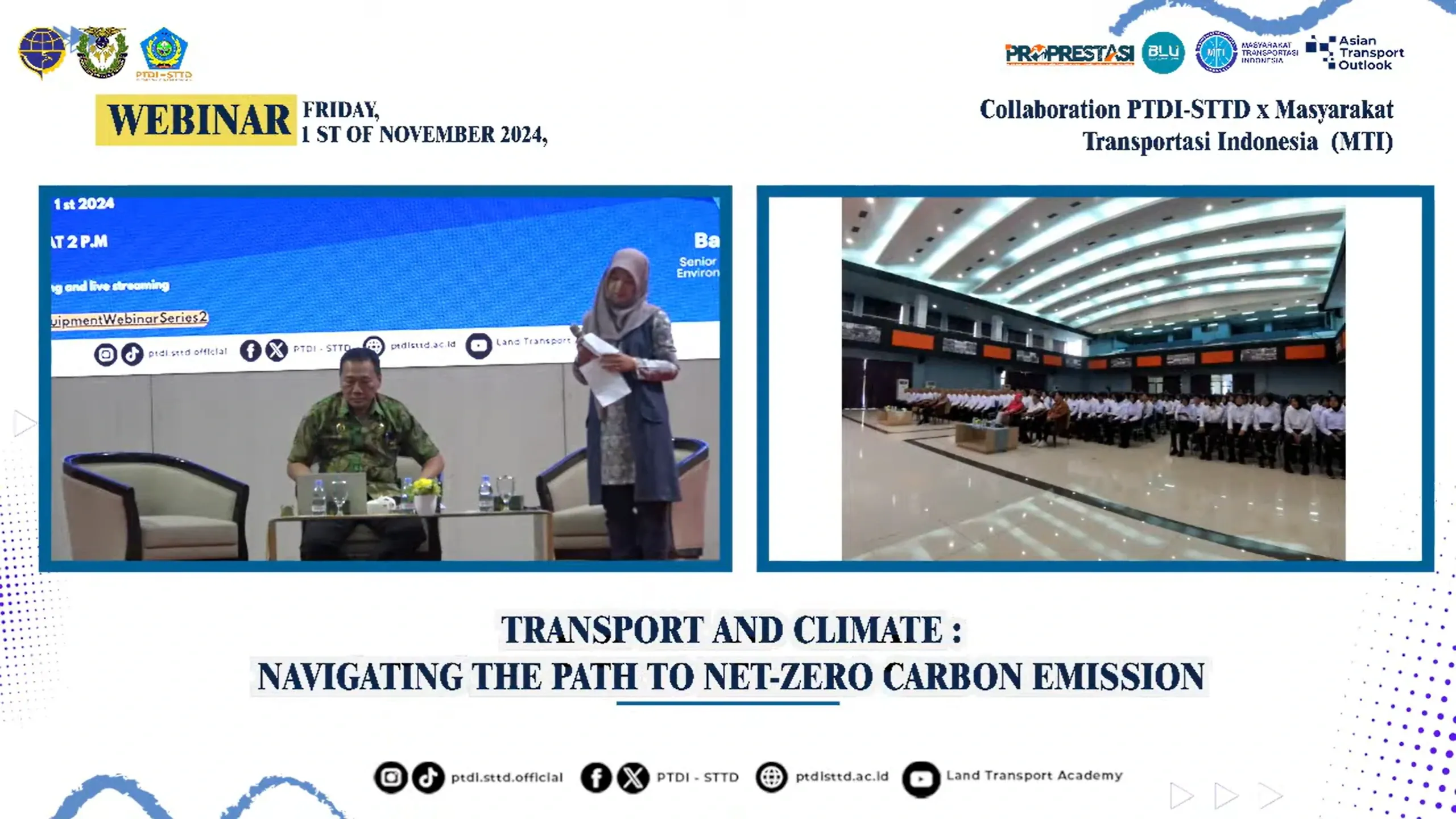Transport and Climate - Navigating the Path to Net-Zero Carbon Emission

On November 1, 2024, a hybrid capacity building event entitled "Shifting Towards Sustainable Development: A Webinar Series on Transportation and the Sustainable Development Goals (SDGs)" was organized by the Politeknik Transportasi Darat Indonesia - STTD in collaboration with the Indonesian Transport Society (Masyarakat Transportasi Indonesia or MTI), and the Asian Transport Outlook (ATO). These capacity building activities are being supported by ATO as part of its MoU with the MTI.
The event brought together experts to explore the pivotal role transportation plays in response to addressing climate change issues, and specifically focusing on net zero carbon emission pathways.
ATO’s presentation was delivered by Adwait Limaye, Data and Policy Analyst, and the presentation focused on the following themes:
- Transport Emissions Growth and Decoupling with GDP: Asia's transport sector emissions are rising but at a slower rate, with some countries, especially high-income ones, decoupling emissions from economic growth. In Indonesia, transport emissions growth lags GDP but still represents a significant portion of national CO₂ emissions, highlighting the need for further reduction efforts.
- Fossil Fuel Subsidies and Decarbonization Challenges: Fossil fuel subsidies for transport remain high in Asia, with Indonesia’s share declining regionally but still elevated domestically. These subsidies slow the shift to greener alternatives, underscoring the importance of subsidy reform in advancing decarbonization.
- Low Uptake of Renewable Energy in Transport: Asia's use of renewable energy in transport remains low, with a modest rise to 3% in 2021. In Indonesia, biofuel use is notable, but electricity usage for transport is minimal, revealing infrastructure gaps that hinder broader adoption of renewables.
- Infrastructure and Accessibility Issues: Insufficient public transport infrastructure in Asia, particularly in Indonesia, drives high private vehicle reliance. Limited rail and urban transit options, along with urban access issues, impede a shift toward sustainable public transport and increase emissions.
- E-mobility Progress and Limitations: While Indonesia’s EV imports, including buses, are growing, there’s a need for more aggressive policies that phase out internal combustion engines and reduce fossil fuel dependency. Most Asian countries set EV targets but lack measures on ICE phase-out or scrappage, critical for a green transition.
- Transport Policy Landscape and National Commitments (NDCs): Many Asian countries are strengthening transport policies with climate goals, but these are often vague within their Nationally Determined Contributions (NDCs). While policies on public transit and EVs are frequently included, NDCs need clearer, more ambitious commitments to drive real change. Aligning transport strategies with broader development objectives, as seen in models like the 15-minute city, can enhance sustainability, improve accessibility, and make urban areas more resilient.
The event was well attended with more than 600 participants (onsite and online). The recording of the webinar is accessible through the Indonesian Transport Society YouTube channel at https://www.youtube.com/watch?v=Tsos_2H99uI.